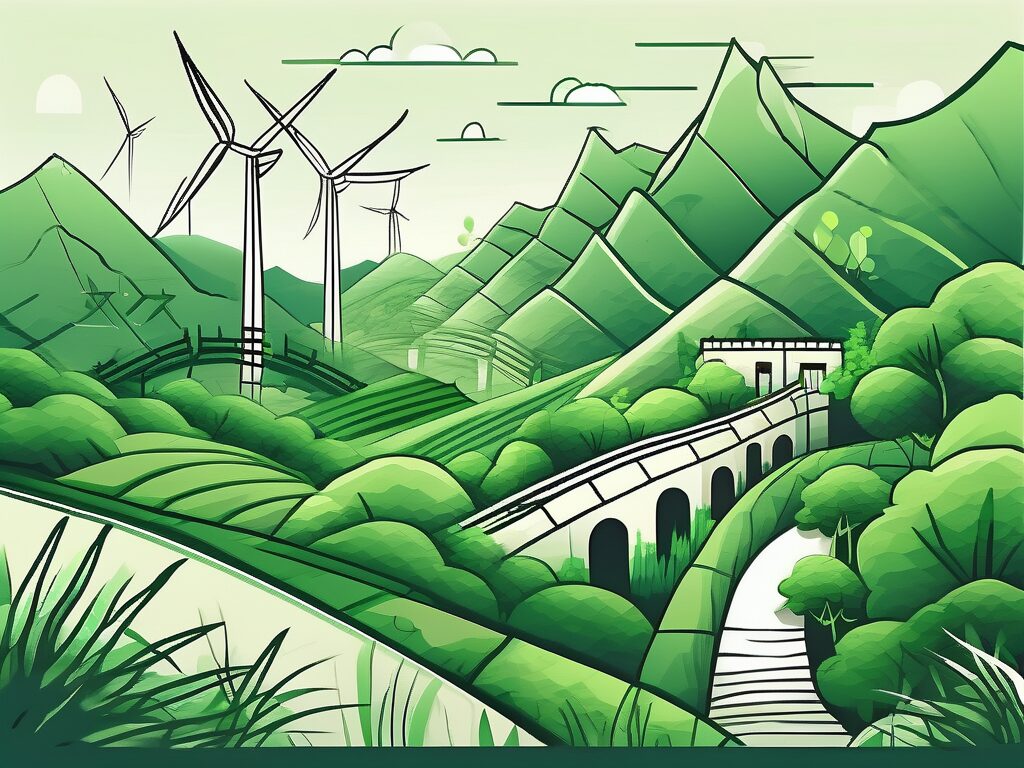In the face of global environmental challenges, China has been making significant strides towards an eco-revolution. The country is not only investing heavily in renewable energy, but also in environmental education. A key player in this revolution is the Postgraduate Certificate in Education (PGCE) in Environmental Education. This programme is designed to equip educators with the knowledge and skills to teach about the environment and sustainability. But what exactly is this programme and why is it so important? Let’s delve into the six must-knows about PGCE in Environmental Education in China.
1. Understanding the PGCE in Environmental Education
The PGCE in Environmental Education is a postgraduate certificate programme that focuses on teaching about the environment. This programme is designed to equip educators with the necessary knowledge and skills to teach about the environment and sustainability. It covers a wide range of topics, from climate change and biodiversity to renewable energy and waste management.
Just like the PGCE programmes in the UK, the Chinese version is also a one-year full-time course. It is designed for those who have a bachelor’s degree and are interested in teaching. The programme combines both theory and practice, providing students with a solid foundation in environmental science, as well as practical teaching experience.
2. The Importance of Environmental Education
Environmental education is crucial in today’s world. It helps individuals understand the impact of their actions on the environment and encourages them to make more sustainable choices. It also fosters a sense of responsibility towards the environment, which is essential for creating a sustainable future.
In China, environmental education is particularly important due to the country’s rapid industrialisation and urbanisation. These processes have led to significant environmental challenges, such as air and water pollution, deforestation, and biodiversity loss. By educating the public about these issues, China can foster a culture of environmental responsibility and promote sustainable practices.
3. The Role of PGCE in China’s Eco-Revolution
The PGCE in Environmental Education plays a crucial role in China’s eco-revolution. By training educators to teach about the environment, the programme is helping to raise awareness about environmental issues and promote sustainable practices.
Moreover, the PGCE programme is also contributing to China’s green economy. By promoting environmental education, the programme is helping to create a workforce that is knowledgeable about sustainability and can contribute to the country’s green industries. This is particularly important as China is one of the world’s largest markets for renewable energy and other green technologies.
4. The Curriculum of the PGCE in Environmental Education
The curriculum of the PGCE in Environmental Education is comprehensive and multidisciplinary. It covers a wide range of topics, including environmental science, ecology, climate change, renewable energy, waste management, and environmental policy. The programme also includes practical teaching experience, allowing students to apply what they have learned in the classroom.
Moreover, the curriculum is constantly evolving to reflect the latest developments in environmental science and education. This ensures that graduates are equipped with the most up-to-date knowledge and skills, making them highly sought after by schools and other educational institutions.
5. Career Opportunities for PGCE Graduates
Graduates of the PGCE in Environmental Education have a wide range of career opportunities. They can work as teachers in schools, lecturers in colleges and universities, or educators in environmental organisations. They can also work in non-educational roles, such as environmental consultants, policy advisors, or project managers in environmental NGOs or government agencies.
Moreover, with the growing demand for environmental education, the job prospects for PGCE graduates are promising. According to the Chinese Ministry of Education, the demand for environmental educators is expected to increase significantly in the coming years, making it a promising career path.
6. How to Enrol in the PGCE in Environmental Education
Enrolling in the PGCE in Environmental Education is straightforward. Applicants need to have a bachelor’s degree and a strong interest in environmental education. Some institutions may also require applicants to have a certain level of proficiency in English, as some of the course materials may be in English.
Once you have met the entry requirements, you can apply directly to the institution offering the programme. The application process typically involves submitting an application form, academic transcripts, and a personal statement. Some institutions may also require an interview.
In conclusion, the PGCE in Environmental Education is a key player in China’s eco-revolution. It is equipping educators with the knowledge and skills to teach about the environment and sustainability, thereby fostering a culture of environmental responsibility and promoting sustainable practices. Whether you’re an aspiring teacher or simply interested in environmental education, this programme is definitely worth considering.
Take the Next Step with The IQTS at UWE
As you consider the pivotal role of environmental education in China’s eco-revolution, it’s clear that professional development is crucial for educators aiming to make a significant impact. The International Qualified Teacher Status (iQTS) Programme at UWE is your gateway to not only meeting international qualification standards but also to advancing your career. With the iQTS, you can expect enhanced promotion rates, salary increases, and a stronger professional network. Embrace the opportunity to deepen your understanding of global education systems and to study flexibly while continuing your work. Don’t let barriers hold you back. Make Your Next Step towards becoming a globally recognized educator with the iQTS programme.

